Foreign Doctors Celebrate China’s Doctors’ Day | Fujian Daily International Edition Features XMCH’s “Heart Sapling Program” on the Front Page
20 August,2025
August 19 marked the eighth China’s Doctors’ Day. On August 17, more than 300 medical workers gathered in Xiamen to celebrate their own special holiday. On stage, five faces of different skin tones stood out among the many yellow-skinned ones. They were trainees of the “Heart Sapling Visiting Scholar Program” at Xiamen Cardiovascular Hospital Xiamen University (hereinafter “XMCH”). Currently, the program hosts 13 trainees in the hospital.
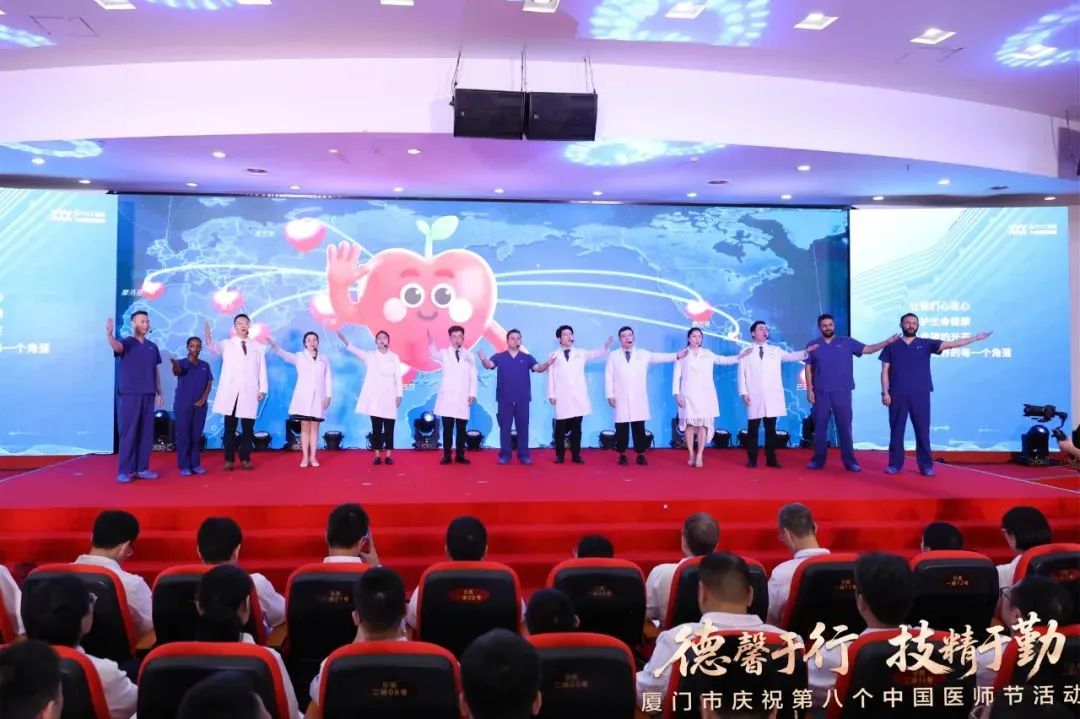
For the first time, Ethiopian doctor Netsanet participated in China’s Doctors’ Day as a visiting doctor in China, sharing her story of studying medicine in Fujian. “This feeling is so special—both exciting and an honor!” she said with emotion. This unique sense of participation further strengthened her belief that “medicine knows no borders.”
The “Heart Sapling Visiting Scholar Program” was officially launched in April 2023 at the United Nations Headquarters by the Global Development Promotion Center of the China International Development Cooperation Agency. It primarily recruits young cardiovascular specialists from BRICS countries and Belt and Road partner nations to receive training of up to one year at XMCH, covering clinical practice, academic exchange, and scientific research. By the end of July this year, the program had received 27 doctors from 12 countries, building a strong platform for Sino-foreign medical exchange and cooperation.
From Observing to Practicing
On the afternoon of August 15, in XMCH’s catheterization lab, Dr. Fandy, a 41-year-old cardiologist from Indonesia, carefully handed over surgical instruments one by one, assisting his mentor in a coronary intervention. His eyes, above the blue mask, were fixed on the vascular images on the monitor.
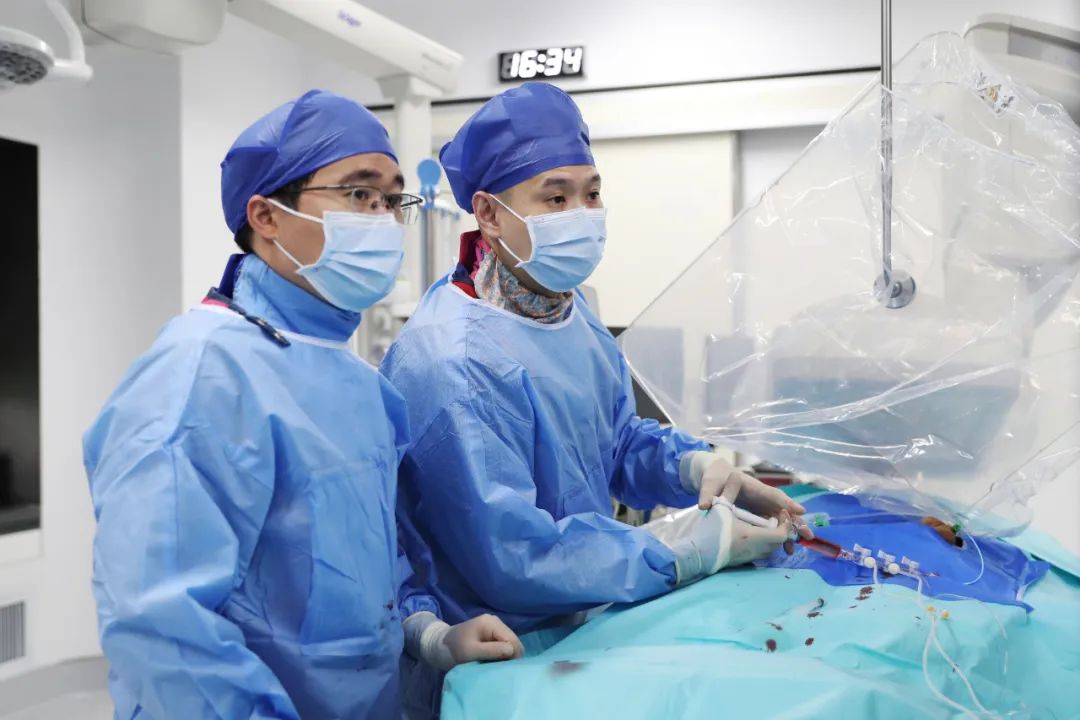
Both of Fandy’s parents are Indonesian Chinese, and he joked that he has “100% Chinese blood.” Stepping onto the land of China carried a special meaning for him. Since arriving in June, he was astonished by the hospital’s scale and surgical volume: “In Indonesia, the three hospitals where I worked only performed about 5–7 angiography and intervention cases per week. But here, in just two months, I have participated in 296 clinical interventional procedures.”
At first, the tight schedule left him no time for his beloved fitness routine. But with the patient guidance of mentors and colleagues, he quickly mastered basic cardiovascular intervention skills. “After returning home, I not only want to be an independent interventional cardiologist, but also a mentor myself, helping local hospitals upgrade their interventional techniques.” His eyes shone with anticipation.
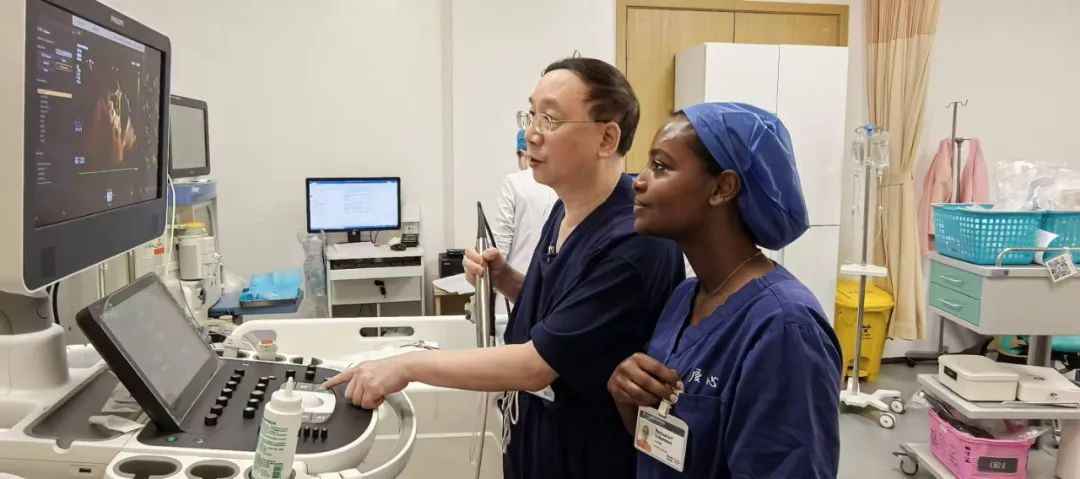
Another career transformation was happening for Ethiopian doctor Netsanet. She had long dreamed of being a doctor and, after becoming a pediatrician, specialized in children’s heart disease. Recommended by the local embassy and selected by her government, she was chosen from among several applicants to become the first Ethiopian doctor to come to Xiamen for training.
At XMCH, she not only felt the warmth of her Chinese colleagues but also systematically learned advanced procedures such as structural heart disease interventions and took part in several operations. “In Ethiopia, trainees can only stand by and observe at the operating table. Here, I can practice with my own hands under the guidance of mentors—I’m making progress every day.” She admitted that after another six months of training back home, she will become one of the few doctors in Ethiopia able to perform pediatric cardiac interventions. “The techniques I’ve learned in Xiamen will change the fate of many children with heart disease in Ethiopia.”
According to XMCH Vice President Xu Liangyou, the hospital provides personalized training for international fellows: there are no fixed classes; instead, trainees follow Chinese doctors throughout their clinical work, gaining abundant hands-on experience, with a focus on cardiology, cardiac surgery, and interventional procedures. In April 2024, the program was included in the CIDCA Global Development Program Library, becoming an important bridge for international medical exchange.
Understanding “Fujian Strength” Through Comparison
Dr. Soorya repeatedly replayed a surgery video on his phone: at the 6th India Summit on Complex High-Risk Interventional Procedures (CHIP) in June this year, a team led by Prof. Wang Yan from XMCH performed a live broadcast of a high-difficulty transcatheter tricuspid edge-to-edge repair using the domestically made NeoBlazar® repair system. As a Heart Sapling trainee from India, Soorya participated throughout.
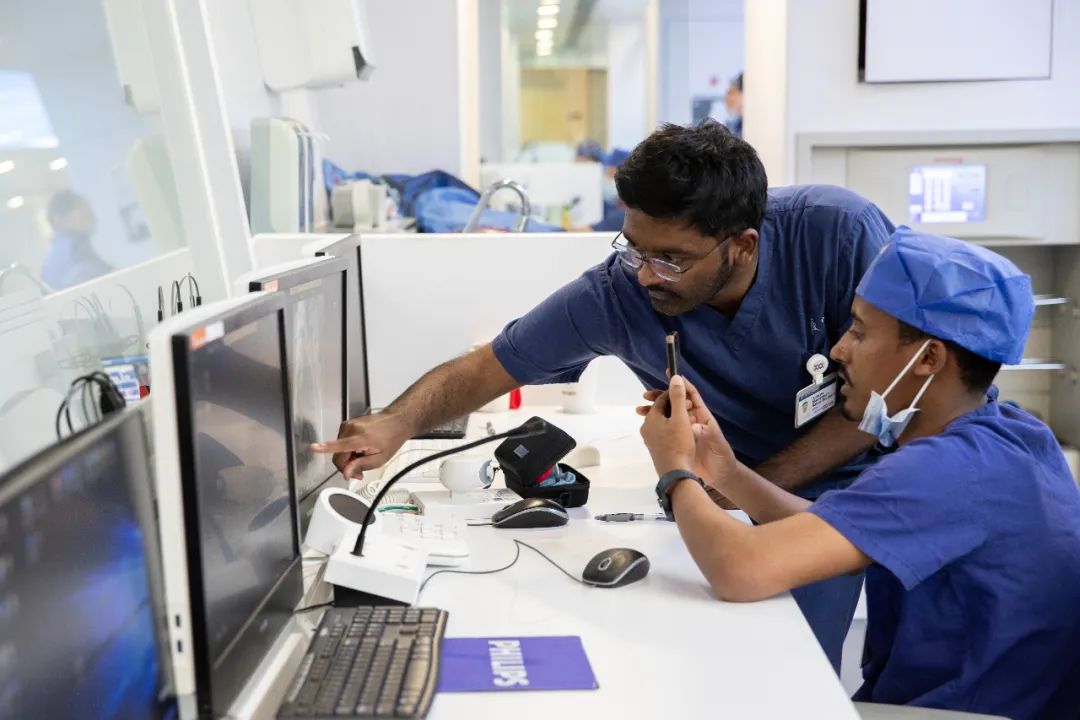
Both Soorya and his twin brother Lakshmi joined the program. Before coming to China, he frequently saw Chinese research in the latest publications; experiencing it firsthand, he was even more impressed by the excellent performance of Chinese-made devices. The accessibility of Fujian’s healthcare also left a mark on him: “At XMCH, over 60% of complex cases use domestically produced devices. Chinese teams’ publications often feature the world’s largest datasets and sample sizes. This shows that China’s technical level is high, its devices are reliable, and its healthcare services reach more people at costs affordable for developing countries.”
Dr. Zakaria from Morocco, who had three years of specialized cardiology training in Europe, also noticed differences. In Xiamen, not only could trainees observe any surgeries they were interested in, but mentors would also break down complex procedures into “1.0 basics” and “2.0 advanced” modules for step-by-step teaching. “This kind of training is rare in Europe. The teachers in Fujian share everything without reservation.”
Soorya’s experience reflected both the original mission of the Heart Sapling Visiting Scholar Program and the global appeal of Fujian’s open healthcare. Over the past 30 years, China’s medical standards have advanced rapidly, with many cardiovascular technologies now at or near the world’s forefront. Trainees often encounter pioneering Chinese devices and Fujian’s rich experience. “We hope that fellows will not only be learners of techniques but also builders of bridges, allowing China’s advanced treatments and medical devices to benefit more countries and regions,” said Vice President Xu. “‘Bringing in’ to learn technology and ‘going out’ to share experience has become the core model of the Heart Sapling Program.”
A Bridge for Sharing the “China Solution”
In fact, the value of the Heart Sapling Program extends far beyond training fellows—it has become a bridge for sharing China’s cardiovascular health solutions with the world.
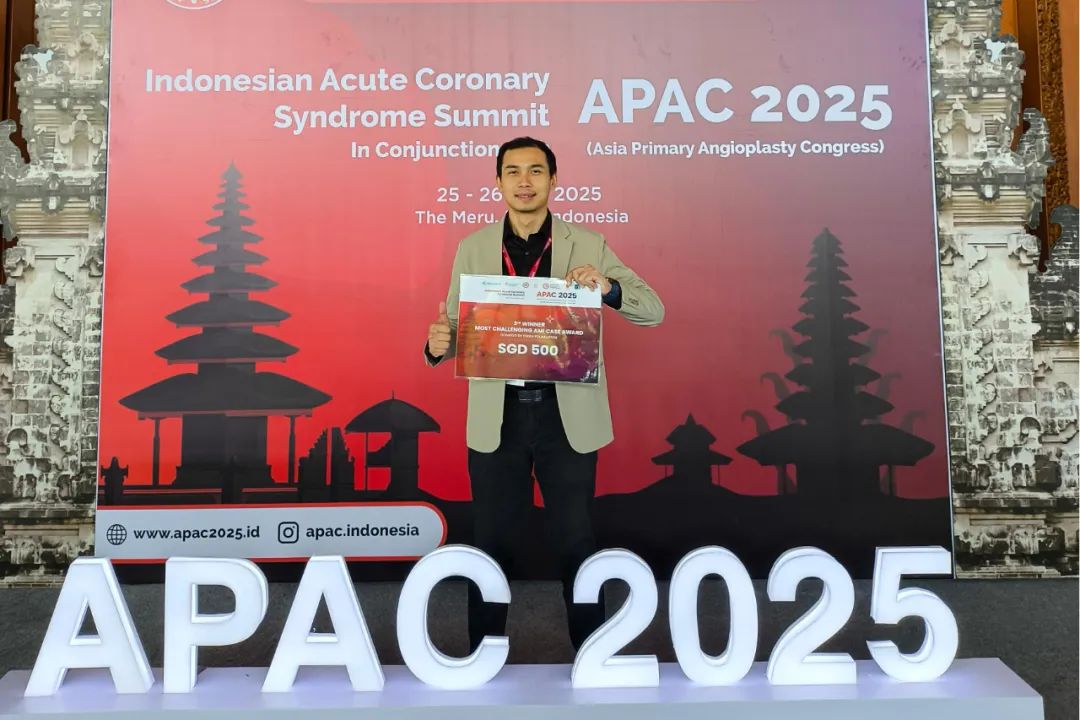
In July, Indonesian trainee Suryo presented a case of acute myocardial infarction treatment he had participated in at XMCH during the Asia Primary Angioplasty Congress. He won third prize in the “Most Challenging AMI Case Awards.” During his fellowship, the XMCH team even visited his hospital in Indonesia, performing two interventional surgeries with Chinese-made devices—both firsts in that region. Last year, a Brazilian trainee helped facilitate an online academic exchange between XMCH and hospitals in Brazil, where three live-streamed surgeries showcased Chinese expertise.
Dr. Fandy also observed a critical difference: in Indonesia, cardiovascular interventions are accessible only to a small group, but in China, they have already become widely available. “China’s bulk procurement policy, combined with its growing strength in medical device R&D, has significantly lowered the costs of such procedures,” he said. “Not only are China’s technologies and products worth promoting, but its inclusive healthcare model is also worth learning from.”
Vice President Xu Liangyou added that XMCH will continue building a regular international talent training mechanism under the Heart Sapling Program, cultivating a brand for global medical exchange, creating a cross-border community of cardiovascular doctors, breaking down geographic barriers, and pushing Chinese medical technology and products onto the world stage. “We aim to bring high-quality healthcare to patients in more countries and to write a Fujian chapter in the story of Sino-foreign medical cooperation.”
Source: Fujian Daily
share
Latest News
-
01 December,2025
Heart Saplings Blossom| Fellows from India and Indonesia Win Awards at International Academic Conferences with Cases from XMCH
-
03 November,2025
“Made-in-China” Robot Performs Cross-Continental Heart Intervention, Achieving a World First in Remote Operations
-
09 October,2025
Accelerating Technology Export | Xiamen experts conduct academic exchanges and demonstrate domestic IVL procedure in multiple hospitals in Pakistan

